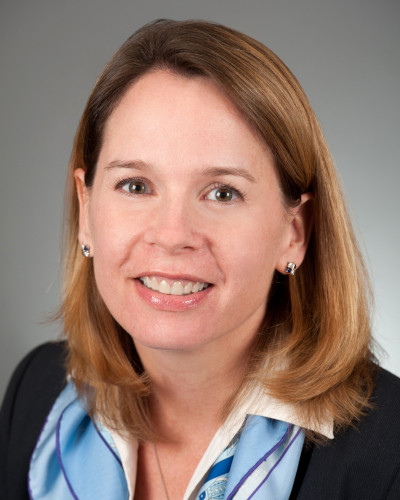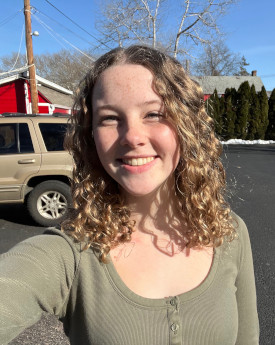In this second episode of The CARRA Podcast, Claudette Johnson talks with Dr. Mary Beth Son, who is the Co-PI of the CARRA Registry. Dr. Son is Clinical Chief of the Division of Immunology and Section Chief of the Rheumatology Program at Boston Children’s Hospital, as well as an Associate Professor of Pediatrics at Harvard Medical School.
The Childhood Arthritis and Rheumatology Research Alliance (CARRA) has the largest ongoing, observational registry in North America that collects clinical and patient-reported information about children and young adults with pediatric-onset rheumatic diseases. The CARRA Registry has more than 14,000 patients enrolled at 70 sites. It also serves as a biosample repository for select translational studies that leverage registry data.
In this episode, we’re going to learn what a registry is, the roles that registries play in research, and how patients and families can help support them. Let’s start off with the question: What is a registry?
A registry generally refers to a repository or a collection of data. Typically research registries have a lot of clinical data regarding the patients that participate in them, and the data can really vary in terms of how much data you collect, what kind of data you collect and if you collect other things like biosamples. But a registry itself is a very broad term for a way to capture important information that you think will inform research questions and research projects.
So, you said it collects data. What sort of data?
The CARRA registry is a large registry, and it is used to study pediatric rheumatic disease. It has a lot of people participating and supporting it. At the moment, there are three main diseases that we collect data on, and that includes juvenile arthritis, lupus, and juvenile dermatomyositis. These are three of the more common diseases that we see in pediatric rheumatology clinics.
The real advantage of studying pediatric rheumatic disease in a registry is that these are rare diseases. We really want to be able to answer the kinds of questions that patients and their families have, but any one center has a very difficult time robustly answering questions about these diseases because they’re rare. If you pull everybody in, then you’re really able to study things and hopefully get to some meaningful answers for patients and their families.
So, why do researchers specifically need the registry?
It helps with clinical questions like:
- What medications are best?
- What kinds of side effects do we see with different kinds of medications?
- What does it look like for a child or an adolescent with arthritis?
- If they’re five years into their diagnosis, how do things look like in regards to what kind of medications they’re taking, and what is their disease activity level?
There are different disease activity measures that we can look at in different diseases. It gives you the ability to sort of build snapshots of what it looks like along an entire spectrum of disease for children and for adolescents with these specific diseases.
So, on the part of a patient, what can patients do to help the registry?
I think sometimes, research means different things to different people, and participation in research can sometimes seem unfamiliar or it may be unclear what people have to do. For a registry, especially one like the CARRA registry, which is what we call observational, this means that we’re collecting data at routine visits. We’re not asking patients and families to do things outside of clinic visits, so all you have to do really is show up to clinic.
We do ask either patients or their parents to fill out certain kinds of surveys. These surveys are something called patient-reported outcomes because we want the patient voice involved in our clinical research. For example, the surveys on patient-reported outcomes may involve questions like:
- How are you doing during the day?
- Do you have pain?
- How is going to school?
- Are there things that are hard for you?
We ask them to fill out those surveys because these are totally specific to them and their experiences. We can’t answer those questions; they have to be able to do that themselves.
I think if patients and families are interested in any kind of research, they should always approach their doctors and ask because that is how questions get answered and how we move things forward for the clinical outcomes that patients and families care about.
What about biosamples?
Yes, I’m glad you asked about biosamples. If you think about it, we can collect all these different data points, or different data items on patients who are in a registry. For example, we might collect information like how old they are, what disease do they have, what medications do they take, and whether their disease active or not. But those are all questions that are answered without knowing what’s actually going on inside that person’s body. So, biosamples add in that whole dimension. We can study someone’s blood, usually for different kinds of either markers of disease or predictors of disease, and then you can match that to the patient’s clinical data and that gives us a real picture of what’s going on in that disease.
Do you have patients who are concerned about their privacy? And if so, what do you say to them to help reassure them?
Thank you for asking that. For sure, that is one of the main concerns that’s either brought up either by the patient or their family. I think that’s a very legitimate concern, especially in this day and age of people always fearing that they’re being hacked, and their information’s being stolen.
This is a really important question to ask for anything that you participate in. What I would say for the CARRA Registry specifically, which is what I know the most about in this instance, is that the data that belong only to you – like your name, and your birthday, and all that kind of information – are stored securely on a server, and is only given out to other people as de-identified data, which means that no one will be able to figure out that it was you.
We take security risks extremely seriously and, we are happy to talk about it in clinic. But the risk is actually really quite low for these kinds of data.
Who is invited to join the CARRA registry specifically? Is it every patient?
Ideally speaking, we would like every patient who comes to a pediatric rheumatology clinic in either the U.S. or in Canada who has either juvenile arthritis, lupus or juvenile dermatomyositis to be approached because we feel that research should be inclusive. What I mean by that is we learn the best about these diseases if we get everybody who has it into research studies so that we really know what happens across the spectrum of disease.
It doesn’t mean that patients have to participate, just to be clear, right? Each patient and each family needs to make their own decisions that they’re comfortable with. But we feel like that decision should be up to them. They only get to make that decision if we ask them, if we approach them and say, “We have this study in mind, would you consider participating?”
How can a patient make a difference by being in CARRA’s registry?
That’s a good question because with registry data, it doesn’t benefit sort of any one person, right? We put all the data into groups and then we study it that way.
What we can say is that participation in research might help other people, which I think is important to some kids and families when they’re feeling either frustrated by lack of answers or feeling worried that there’s not enough information out there for them. Participating in research is a concrete way of saying, “I am helping to move this forward, and it may not help me today, but it might help me a few years down the road, and it might also help lots of people behind me who are going to have these diseases in a few years.”
The patients whom I talk to who are most inspired by their journey, as a research participant, really focus on that. They feel like with all the things that they may not have control over, they do have control over this. They have control over their participation, and they might feel good about knowing that they’re contributing to hopefully making it better for kids coming up behind them with the same disease.
I also wanted to ask about AI, because in this day and age, it’s in the news a lot. Do you see this new technology as helping registries provide a new perspective on this data?
Yes, I think AI could play an important and really helpful role in terms of new kinds of analyses that we could do and new ways of looking at these data. However, I still think that the human touch of having a one-on-one conversation about research between a patient’s family and either a physician or nurse or research coordinator is hugely important. That is still really important, and AI can never replace that.
For you personally, how do you think the registry has sort of changed your perspective on your practice of medicine?
I think the reason why I wanted to get involved and why I stayed involved in the CARRA registry is that we simply don’t have enough answers for all of our patients and families yet. Being a part of this makes me feel like I’m doing something concretely to try and help move the field forward. As we collect more and more data and we look at the data in certain ways and try to answer questions that are important to patients, families and physicians, it makes me feel like I’m doing some small part in moving that forward.
Thank you, Dr. Mary Beth Son. Before we end this, I just wanted to ask one more bonus question. What is one thing that your patients might not know about you?
I have three daughters, and I love being a mom.
Learn more about the CARRA Registry and ongoing research using the registry and biorepositories.
This podcast is produced and edited by Emily Nguyen. Our music is by Jonathan M. Horner.
About Dr. Mary Beth Son

Mary Beth Son, MD, is Clinical Chief of the Division of Immunology and Section Chief of the Rheumatology Program at Boston Children’s Hospital, as well as Director of the Samara Jan Turkel Clinical Center. Dr. Son is also an Associate Professor of Pediatrics at Harvard Medical School. Dr. Son has been actively involved in the , and she is the Co-PI of the CARRA Registry. Dr. Son’s extensive research has focused on Kawasaki disease and childhood Systemic Lupus Erythematosus. She is also actively involved with the Kawasaki Disease Biorepository.
About Claudette Johnson

Claudette is a Junior at Montclair High School in Montclair, New Jersey. She was diagnosed with Localized Scleroderma at age nine. She enjoys playing piano, reading and competitive diving. Claudette is also an incredible advocate and innovator. She is the host of The CARRA podcast, and she created an award-winning video called “The Land of Rare Disease.”
About Emily Nguyen

Emily is a Sophomore at New York University studying Film and TV Production. She was diagnosed with Lupus Nephritis at age eight. Since her diagnosis 12 years ago, Emily has been a lupus advocate—raising money, spreading awareness and supporting other patients afflicted by the disease. In her free time, she enjoys creating films, painting, baking and traveling.
We want to hear from you! Send us a message to let us know your thoughts, suggestions, or any ideas for future topics.